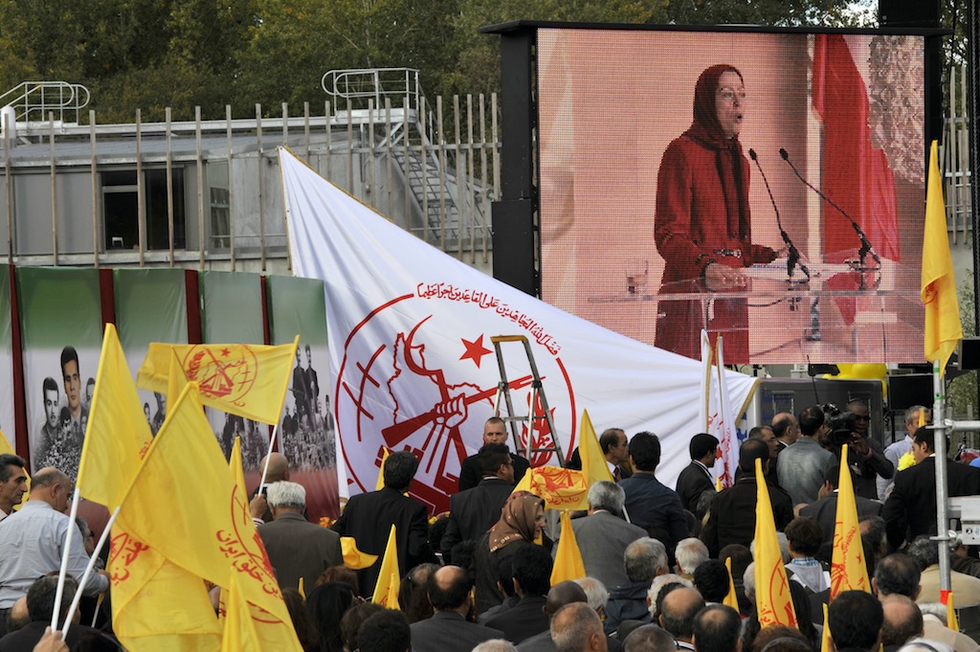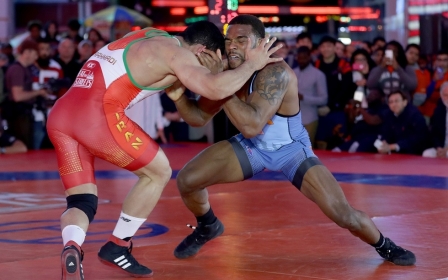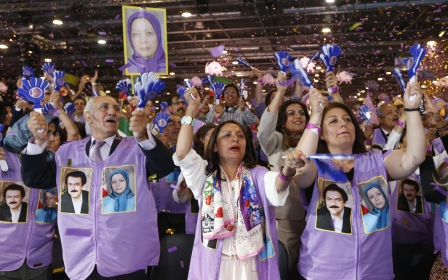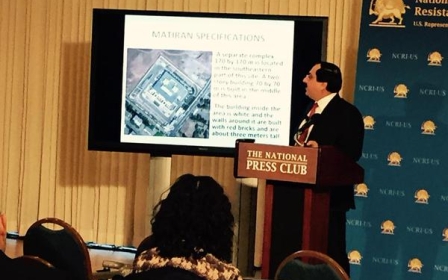Trump appointee paid $50,000 by Iranian opposition MEK group

One of Donald Trump's picks for his new administration was paid $50,000 by the "cult-like" Mujahedeen e-Khalq (MEK), a long-standing Iranian opposition group classified as a terrorist organisation by the US until 2012.
Elaine Chao, who Trump confirmed this week as his transportation secretary, was paid the money for a speech to the group in 2015. Former New York mayor Rudy Guiliani, currently Trump's cyber security adviser, was paid an unknown sum to talk to the group.
The MEK was originally formed in 1965 in opposition to the Shah of Iran, and later developed an ideology combining Islamism and Marxism. Although it initially supported the Islamic Revolution against the Shah in 1979, the group turned against the Islamic Republic and started an armed struggle in 1981.
The US designated the group a terrorist organisation in 1997. The MEK now claims to have renounced violence. A number of American politicians have promoted the MEK as a viable alternative to the Islamic Republic and successfully pushed for the group to be removed from the terror list in 2012.
The MEK was, for many years, based in Iraq, where they supported Saddam Hussein in his war with Iran and also reportedly fought against US-led coalition forces after the 2003 invasion. The organisation, which after years of threats and attacks finally relocated to Albania, has been accused by the US State Department of having "cult-like" characteristics.
According to a report by the RAND corporation, a US global policy think tank, the MEK leadership reportedly dictates how much its members sleep, gives them busy work tasks, and controls what news they consume.
In her speech to the group, Chao spoke about the Islamic Republic's record on women's rights.
"While discrimination against women [has] been outlawed in other countries, Iran has been legalising it," she said. "While other countries are empowering women, Iran has been penalising them."
The Taiwan-born Chao served as deputy secretary of transportation in the 1980s, and was later US labour secretary under President George W Bush. She is the first Asian-American woman to serve in a presidential cabinet and is the wife of Senate Majority Leader Mitch McConnell.
Many analysts have been critical of the support shown to the MEK by Republican politicians. Daniel Benjamin, former coordinator for counterterrorism at the State Department between 2009 and 2012, has described the MEK as "universally loathed in Iran, where no one forgets its service to Saddam or its slaughter of Iranian conscripts and others".
The new Trump administration, which has shown intense hostility to Iran since coming to power in January, has given the group a new opportunity to position itself as a potential successor to the Iranian government.
"The Mujahedeen have backed the winning horse. They are going to have some at least entree into the administration," said Ervand Abrahamian, a professor at the City University of New York, speaking to the Associated Press.
"I think it weakens the US because the more they have access to the administration, the more people in Iran are going to be scared of anything the US does."
Deteriorating relations
Relations between Iran and the US have deteriorated sharply since Trump took office last month promising a tough line on what he sees as Iranian belligerence toward US interests.
"Iran would do well to look at the calendar and realise there's a new president in the Oval Office. And Iran would do well not to test the resolve of this new president," Vice President Mike Pence told ABC News in an interview taped Saturday.
The tough talk came after Trump's Pentagon chief, James Mattis, declared last week that Iran was "the single biggest state sponsor of terrorism in the world".
The charged rhetoric has raised questions over whether the United States will abandon commitments it made under a landmark deal - negotiated with several world powers and approved by president Barack Obama in 2015 - that obliged Iran to curtail its nuclear programme in exchange for relief from US and international sanctions.
"The Iranians got a deal from the international community that again, the president and I and our administration think was a terrible deal," Pence said.
Although Mattis and Secretary of State Rex Tillerson have said the United States would stand by the agreement, Pence was less forthcoming.
"Well, we're evaluating that as we speak," he said.
"I think the president will make that decision in the days ahead. And he'll listen to all of his advisers, but make no mistake about it. The resolve of this president is such that Iran would do well to think twice about their continued hostile and belligerent actions."
US officials said the new sanctions imposed on Friday were in response to Iran's recent ballistic missile test and its support for the Houthi rebels in Yemen, who recently targeted a Saudi warship.
The White House has said "nothing is off the table" - even military action.
Middle East Eye propose une couverture et une analyse indépendantes et incomparables du Moyen-Orient, de l’Afrique du Nord et d’autres régions du monde. Pour en savoir plus sur la reprise de ce contenu et les frais qui s’appliquent, veuillez remplir ce formulaire [en anglais]. Pour en savoir plus sur MEE, cliquez ici [en anglais].




